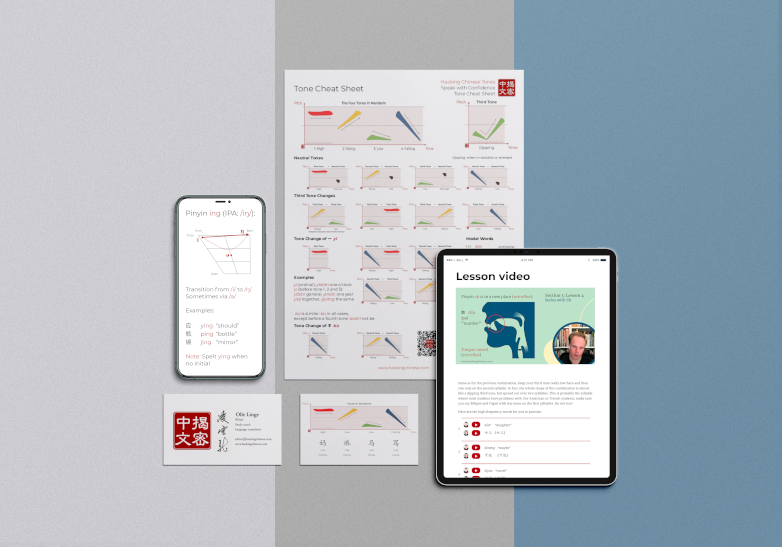 For many students, speaking Chinese well is the main goal of learning the language. Speaking is the visible tip of the iceberg; the part other people notice and use to gauge how much Chinese you know. Let’s have a Chinese speaking challenge and improve together!
For many students, speaking Chinese well is the main goal of learning the language. Speaking is the visible tip of the iceberg; the part other people notice and use to gauge how much Chinese you know. Let’s have a Chinese speaking challenge and improve together!
Most students spend too little time on the receptive skills of listening and reading, which make up the much bigger part of the iceberg below the surface; the time you need to invest but which is rarely visible to outsiders.
This is why there are many more listening and reading challenges than there are speaking challenges. However, focusing on speaking occasionally is not a bad idea. No matter how much you listen, you do need to practice speaking to become good at it. This includes fluency practice, pronunciation, grammar and more.
The challenge starts on the 10th and lasts until the end of the month. Enrol in the challenge, set a goal for the period and start practising! Below, I will provide some suggestions for what to focus on and how to practise. First some instructions for how to join the challenge, which is completely free:
Win a slot in my upcoming pronunciation course
I have built a pronunciation course, perfect for learners on all levels, from those who want to learn the basics to those who want to polish their accents. Learn more about the course here: Hacking Chinese Pronunciation: Speaking with Confidence
Hacking Chinese speaking challenge, March 10-31, 2025
Hacking Chinese Challenges is about building language skills through daily practice and friendly competition. By focusing on one specific area of learning over a limited period, you will be able to learn more!
Tune in to the Hacking Chinese Podcast to learn more about Hacking Chinese Challenges:
Available on Apple Podcasts, Google Podcasts, Overcast, Spotify, YouTube and many other platforms!
This is how you sign up and join the challenge:
- Sign up (using your e-mail, Facebook or Twitter)
- View current and upcoming challenges on the front page
- Join the speaking challenge
- Set a reasonable goal (20-40 minutes per day depending on your situation)
- Create a plan for what to improve (see below)
- Report your progress on your computer or mobile device
- Check the graph to see if you’re on track to reaching your goal
- Check the leaderboard to see how you compare to others
- Share progress, tips and resources with fellow students
Please note: The challenge starts on the 10th, so even if you can join now, you won’t be able to report progress until then.
How to improve your speaking ability
Improving speaking ability is a complex task and it’s difficult for me to know what you need the most. Here are some useful activities I would recommend that you try out during the challenge. Pick one or two (some are possible to combine).
- Speak more – If you want to become fluent in Mandarin, you need to speak more. If you already live in a Chinese-speaking environment and speak Chinese daily, you shouldn’t focus on pure quantity, but for people studying Chinese in their home countries, increasing volume is especially important.
- Fix a known problem – If you have studied Chinese for a while and pay attention, you will probably have a number of problem areas you know you should work on. It could be pronunciation, word order, modal particles or something. This is the time to work on one of these problems.
- Find a problem – It’s very unlikely that your spoken Chinese is problem-free. If you don’t know of any problems, you just haven’t found them yet. Work with a native speaker, record yourself and try to find systematic errors in your speaking. Then fix them.
- Mimic a native speaker – If you don’t know what to do and just want an awesome way of improving speaking ability that works for all levels, find a short audio or video clip of a native speaker and try to record your own version. It should be as close to the original as possible. Focus on each phrase until you get it perfectly, then record. This can take a long time, so select a short clip, perhaps just a minute long.
- Start a voice diary in Chinese – This could be with or without video, public or private, depending on what you prefer. It’s like blogging in Chinese, and many of the same benefits apply, except you do it in speaking. If you want to focus on quality, make sure you share the result with at least one person who can give you feedback. If you just want to speak more, this matters much less.
- Use voice messaging instead of chatting in text – This is not a method to practice, it’s just a useful way of turning typing into speaking. Most modern messaging apps support voice messages, which are awesome for language learning. It gives you more time to think, a record of what you and the other person are saying, as well as flexibility because you can speak with someone who isn’t online at the same time as you.
- Process speaking – If your overall goal is to improve quality rather than quantity, focusing on the process is key. By working with the same content over a period with cycles of feedback, you can improve a lot. This is particularly good for expanding into areas you don’t feel comfortable with but need to be able to handle.
There are of course many more things you can do, some of which are explored in the speaking category here on Hacking Chinese. Feel free to share your plan in the comments below!
Preliminary challenge schedule for 2025
Here is a preliminary list of challenges for 2025, but I’m always open to ideas. Based on user participation, surveys, as well as my own opinion, reading and listening challenges, are particularly helpful for a large number of people, followed by those focusing on vocabulary. These will recur more often throughout the year, with other, more specific challenges in between.
Challenges last for roughly three weeks. They always start on the 10th of each month and last until the end of that month. Three weeks is enough to get a significant amount of studying, but not so long that people lose focus. This also leaves ten days of breathing space between challenges.
- January: Writing
- February: Listening
- March: Speaking
- April: Reading
- May: Vocabulary
- June: Listening
- July: Writing
- August: Reading
- September: Speaking
- October: Listening
- November: Vocabulary
- December: Reading



7 comments
These are awesome! Just discovered your challenged – started this one just in time.
I wish challenges could be slightly longer than 21 days!
How long would you wish them to be? The reason they are 21 days, as opposed to a month, is that it’s hard both to manage and to participate in challenges if there’s no gap between them. Sure, I could have a schedule that doesn’t match up with calendar months, but I have a feeling that would be harder to remember as it’s not very intuitive. “April speaking challenge” is easier to get an idea of what it is than “April 10th to May 24th speaking challenge”! 🙂
I was thinking just having a 5 day gap instead of a 10 day gap. So the April challenge could be from April 5 – April 31. That would increase the number of days in each challenge by ~20%!
Awesome initiative for Chinese speaking practice.
Ollie我觉得二十一天是很好的。。 21 days is a perfect length. 我做的一些Hacking Chinese 挑战。 Having completed several back to back, 我知道空时间是非常重要的。。I know that I need time to between them to breathe out and rebalance my personal practice. It also takes this time to absorb the benefits of the completed challenge and intergrate them into the overall context of life…
I have a couple goals. 我有一些目标-
的一是问题。。Work on problem issues like incorrectly produced sounds and tones in Context.
的二十朗读。。Work specifically on performance reading because am a poet. It is important that I learn to perform my own poetry in an authentic, powerful and correctly produced voice. I am only at the very beginning of this learning.
I want to build listening into my speaking practice and will use shadowing and chorusing as warm ups. I have found in the past that these really help, but have allowed this to drop out of my daily practice. So this is an amazing opportunity to rekindle this.
Thanks Ollie for this opportunity to focus. I find these challenges a really important part of my fluency adventure.
Glad to hear you (still) find the challenges helpful! I have been a bit extra busy recently and haven’t been able to join myself. I also think 21 days is good, at least if there’s a challenge every month. Longer and it would be stressful to constantly have a challenge going, shorter and there wouldn’t be enough time to get things done!